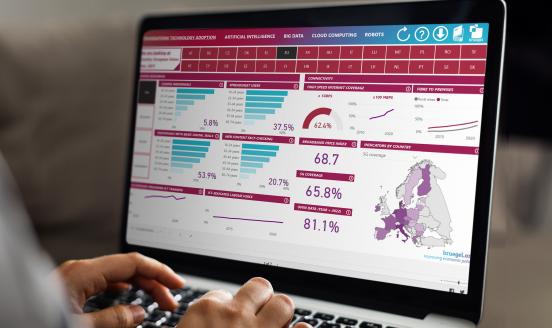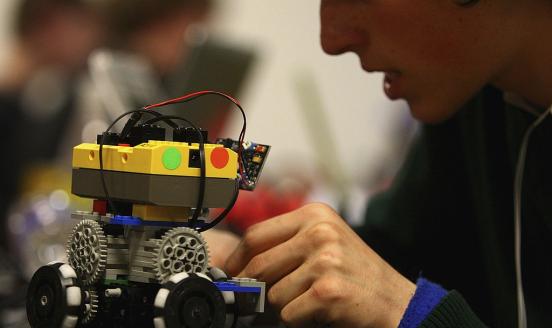Twin transition skills dashboard
This dashboard displays the evolution of skills demand in the EU member states.

First published: 9 January 2024
Introduction
Bruegel’s Twin Transition dashboard displays the evolution of skills demand in EU member countries. Using online job vacancy data developed by Lightcast, a leading global company on labour market analytics, the dashboard provides information on the developments and composition of AI and Green skills demand.
Insights into the evolving landscape of employment opportunities for jobs in the field of AI and sustainability are explored to help uncover the labour market demand for AI and green jobs across Europe.
The dashboard also contains a snapshot of educational prerequisites, skills on the rise and growth patterns, mirroring the format of our previous dashboard elements. In particular, the dashboard focuses on the specifics of AI roles, from ChatGPT to natural language processing, and delves into green jobs such within the fields of sustainable energy, conservation, and waste management.
You can filter the data when using the dashboard find relevant information for various years and the raw data is available to download. To download the explanatory note which explains the data sources employed in the dashboard, click the download button in the header of this webpage.
This dashboard is part of the Future of Work and Inclusive Growth in Europe project at Bruegel, which aims to develop multiple dashboards on labour market topics. It has been produced with the financial support of the Mastercard Center for Inclusive Growth.
To access the dashboard on the external website, please click here.



